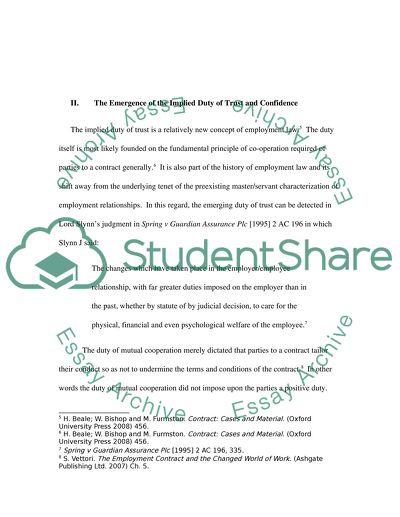Cite this document
(“Critically evaluate the development and application of the implied Essay”, n.d.)
Critically evaluate the development and application of the implied Essay. Retrieved from https://studentshare.org/miscellaneous/1561438-critically-evaluate-the-development-and-application-of-the-implied-duty-of-trust-and-confidence-with-reference-to-contracts-of-employment
Critically evaluate the development and application of the implied Essay. Retrieved from https://studentshare.org/miscellaneous/1561438-critically-evaluate-the-development-and-application-of-the-implied-duty-of-trust-and-confidence-with-reference-to-contracts-of-employment
(Critically Evaluate the Development and Application of the Implied Essay)
Critically Evaluate the Development and Application of the Implied Essay. https://studentshare.org/miscellaneous/1561438-critically-evaluate-the-development-and-application-of-the-implied-duty-of-trust-and-confidence-with-reference-to-contracts-of-employment.
Critically Evaluate the Development and Application of the Implied Essay. https://studentshare.org/miscellaneous/1561438-critically-evaluate-the-development-and-application-of-the-implied-duty-of-trust-and-confidence-with-reference-to-contracts-of-employment.
“Critically Evaluate the Development and Application of the Implied Essay”, n.d. https://studentshare.org/miscellaneous/1561438-critically-evaluate-the-development-and-application-of-the-implied-duty-of-trust-and-confidence-with-reference-to-contracts-of-employment.


